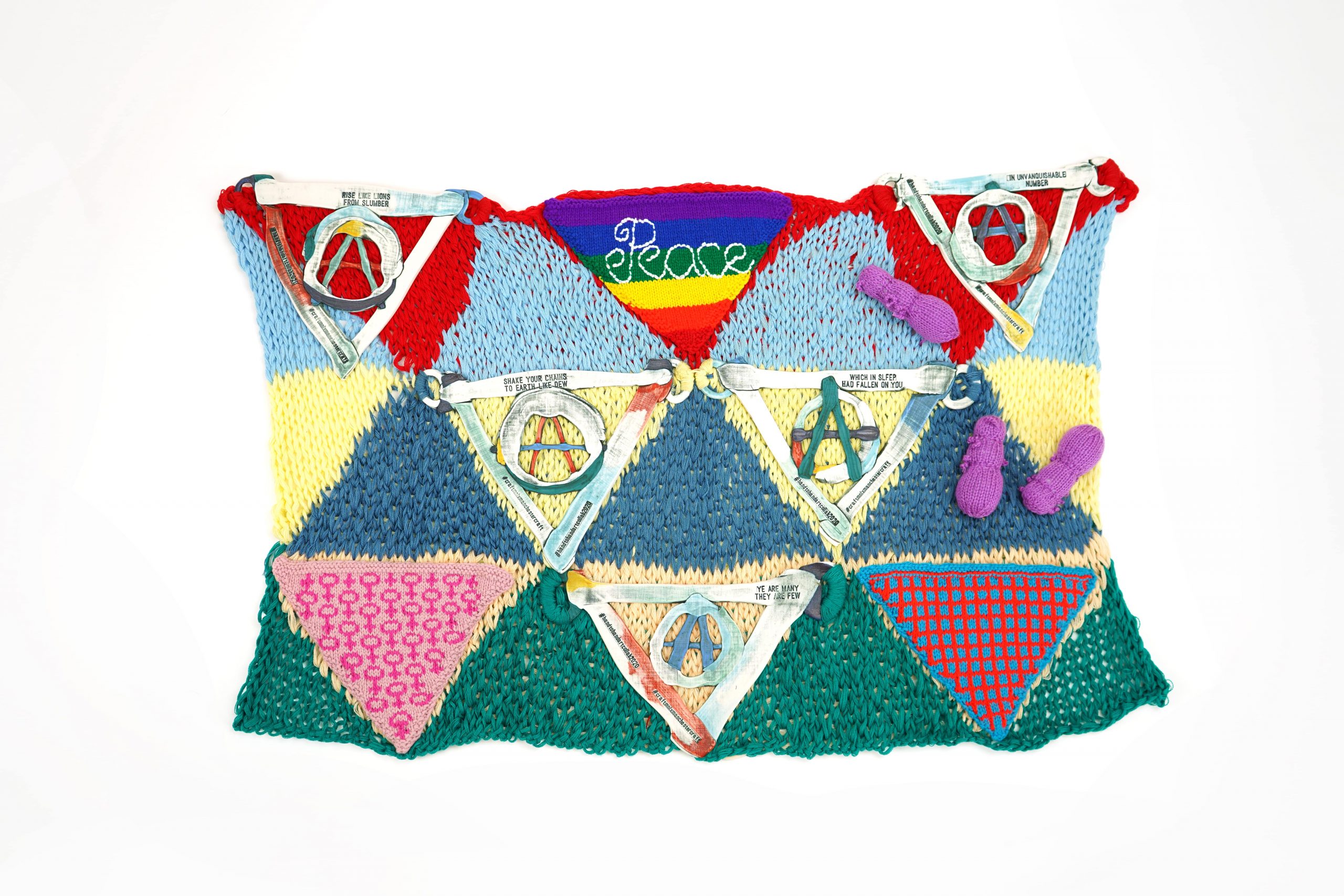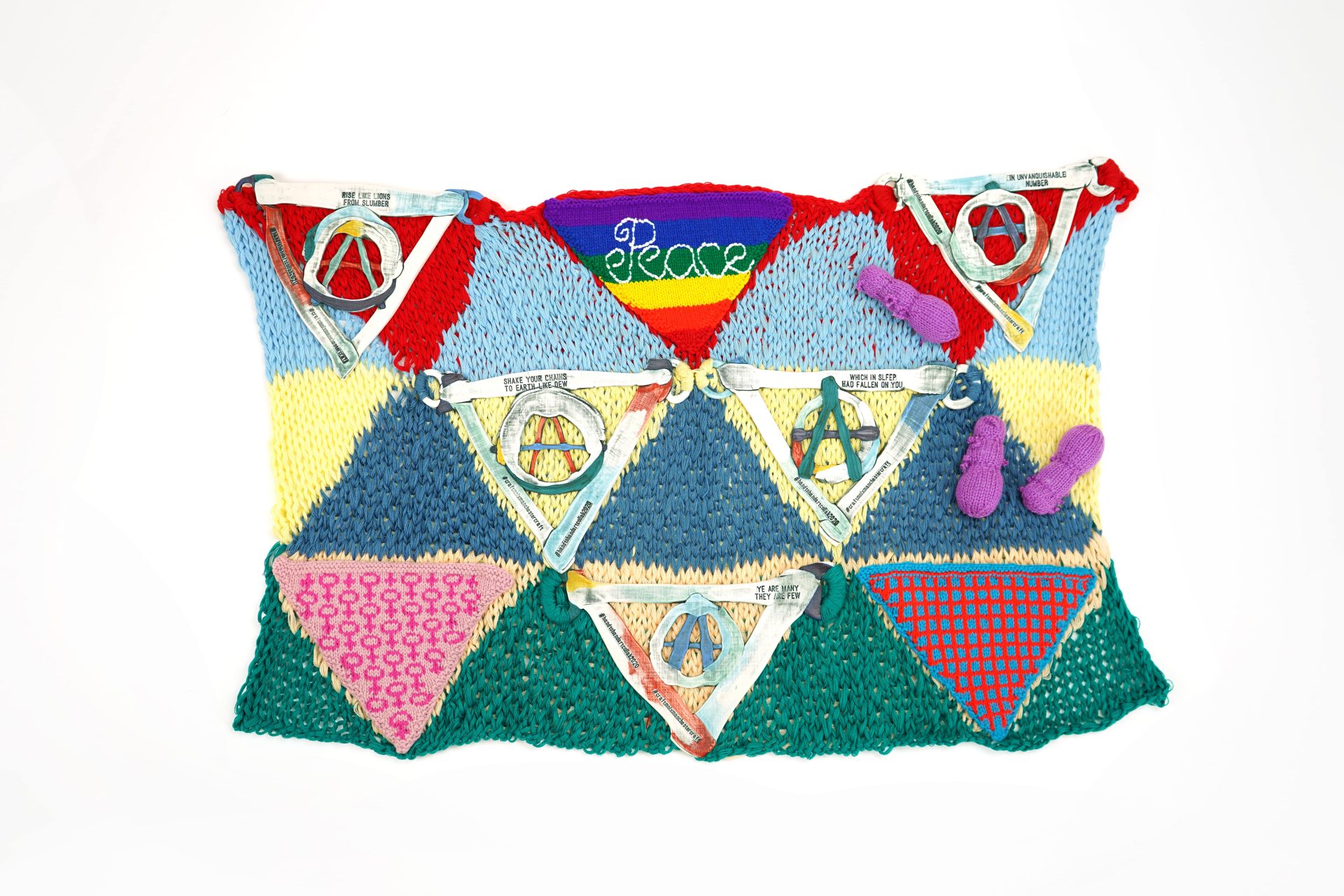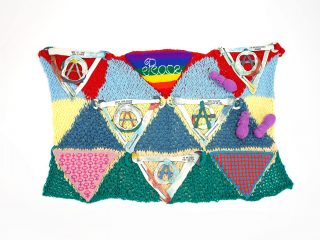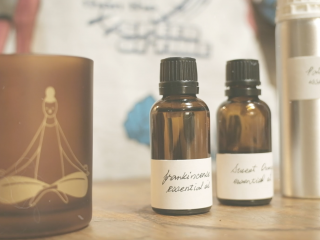Click on the image to view the artworks.
XCI
“Rise like Lions after slumber
In unvanquishable number—
Shake your chains to earth like dew
Which in sleep had fallen on you—
Ye are many—they are few.”
– The Masque of Anarchy (Excerpt)
Percy Bysshe Shelley, 1792-1822
One cold morning in her studio at the Manchester Craft and Design Centre, Linzi Ramsden is bundled up in a gray puffer jacket and a knitted scarf and hat, and through a video call is reading aloud the poem “The Masque of Anarchy.” While living in Italy, it was the lyrical poet’s response to what became known as the Peterloo Massacre that occurred in Manchester on August 16, 1819. Peaceful demonstrators supporting parliamentary reform were charged by a saber-wielding cavalry leaving several dead and hundreds injured.
According to the literary critic John Mullan in a 2013 Guardian article, Shelley meant to have the poem circulated to a wide audience, although it would not be published until the 1830s. It is considered the greatest poem of nonviolent resistance and an inspiration to many historical movements on reform and independence.
Two centuries later, the poem found its way to Linzi. Or rather, she found her way to the poem. Disheartened and frustrated by the result of the recent elections in the UK, one summer she turned to art, philosophy and literature to help process the current political situation troubling her. “I’m trying to understand what artists did, where they went wrong, what they got right,” she says. “Almost like feeding my mind to equip myself and engage in the future on how things can be different…and it has changed [for the better.]”
“I’m trying to understand what artists did, where they went wrong, what they got right.”

What’s the point in engaging politically when nothing seems to change? Or when you’re paralyzed by what needs to be done? Linzi rejects this narrative, believing a sustained commitment to change for the many is flourishing and necessary.
Meanwhile, across the seas and in the tropical pine city of Baguio, Candy Reyes looks cozy in her knitted gray cardigan as she sits in her brightly lit and colorful makerspace office. In preparing their concept, Candy shares that their work is not only about “crafting a statement,” but also sparking a conversation to “make people start thinking, talking, and engaging with them.”
She says, “It’s not enough to be a bystander and see how things are going and not really doing anything about it. And I think the important word we found here is connecting — connecting to people, connecting to a common cause, connecting with the community and also across the world, because we share the same issues all over.” She adds, “Connecting outside our bubble.”
“And I think the important word we found here is connecting — connecting to people, connecting to a common cause, connecting with the community and also across the world, because we share the same issues all over.”
Expressing through craftivism
Linzi says, “What I feel about communicating social injustice is, how do you [talk about it] to someone who overlooks it or accepts it without saying they are wrong, without being rude, insulting? This has been troubling me all year. Because sometimes you just want to say, ‘For god’s sake, you’ve been so manipulated! Wake up!’ But that will get you more division. Also not trying to lay blame on people who think certain things. So it’s that breaking through, and politely and respectfully…”
“And artfully…” Candy chimes in enthusiastically.
“Yes! Exactly! Making that community of social justice bigger.”
“It’s the same thing that’s happening here as well, the division. So it resonated with both of us,” says Candy.
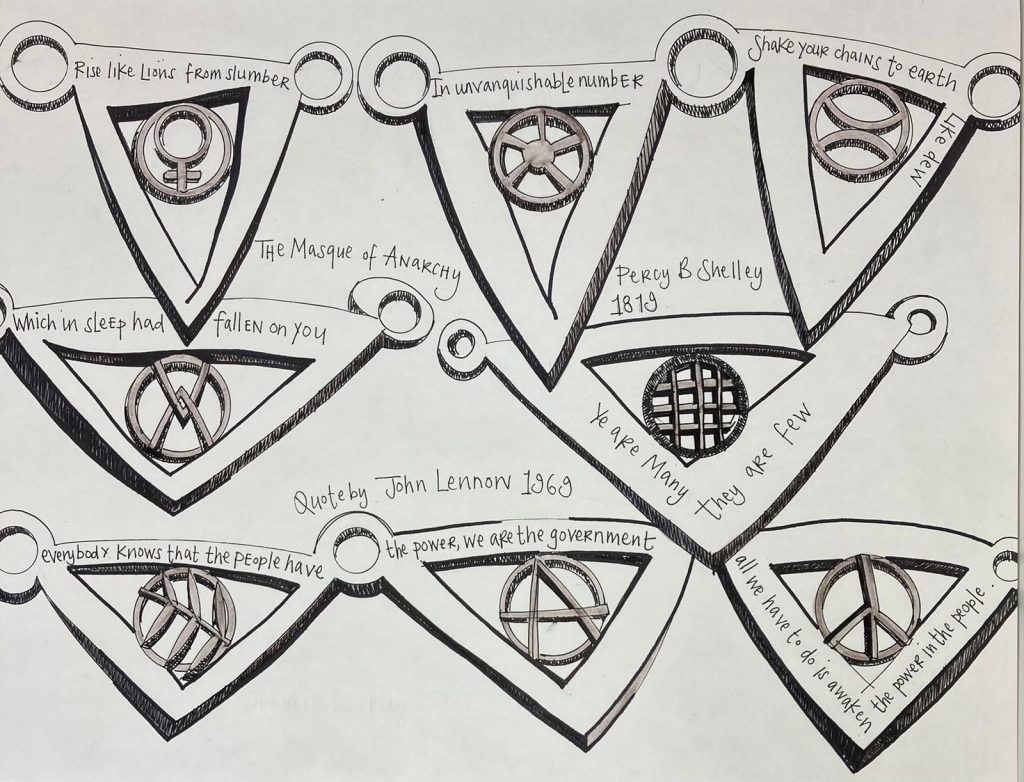
It is through craftivism, coined by knitter and activist Betsey Greer in 2003, that they both wanted to express themselves and open a conversation with people beyond their echo chambers. “Through craft and art, we engage them in communication. Hopefully, it is to empathize. It is us stepping outside, both literally and figuratively,” says Candy. By choosing to install their works in public, they hope to make something bigger than themselves.
“Through craft and art, we engage them in communication. Hopefully, it is to empathize. It is us stepping outside, both literally and figuratively.”
Their combined research led them to symbols and statements used to unite people to a common cause, how art and design played a role, and bring the conversation to people who weren’t engaged in social issues. Their enthusiasm went beyond the project, as Candy and Linzi discovered similar interests in travel, the mountains, and the outdoors. Even their partners found a common ground, to their amusement.
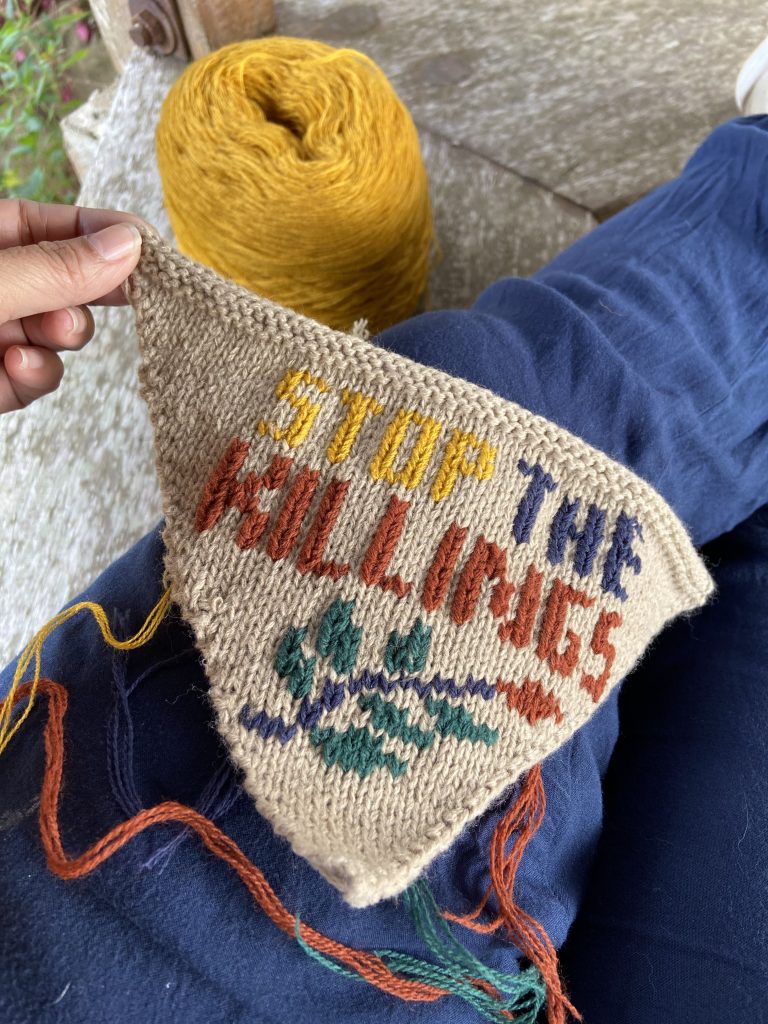
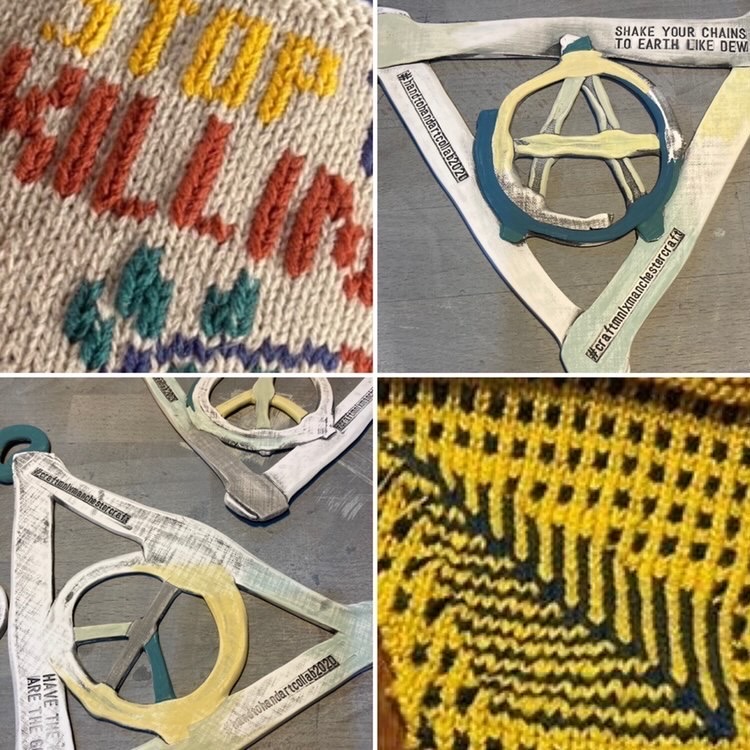
Strong bonds, not chains
It was an exciting moment when Candy finally received the package of fired and glazed ceramics from Linzi’s studio. Having done her knitted works, Candy starts putting their pieces together in a way that is sturdy and holds them all up well.
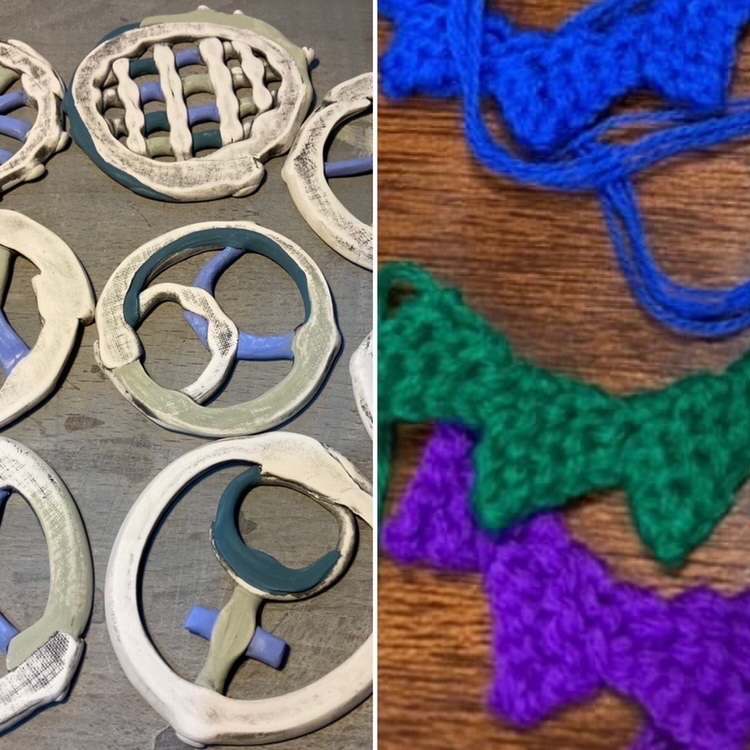
They have also produced smaller versions of their work that can be turned into brooches or decor — striking conversation pieces that hopefully turn heads and open minds. Apart from doing something that inspires them, the experience is also fun and joyful.
Linzi and Candy discuss the importance of democratic processes like the elections, the need to push against the rising tide of populism, supporting courageous and independent media, the numbing violence, and losing (then regaining) one’s voice. Through their collaborative making, they explore an inherited wisdom and the struggle for a fairer and better future. It is through their hands that their voices are heard and made visible.
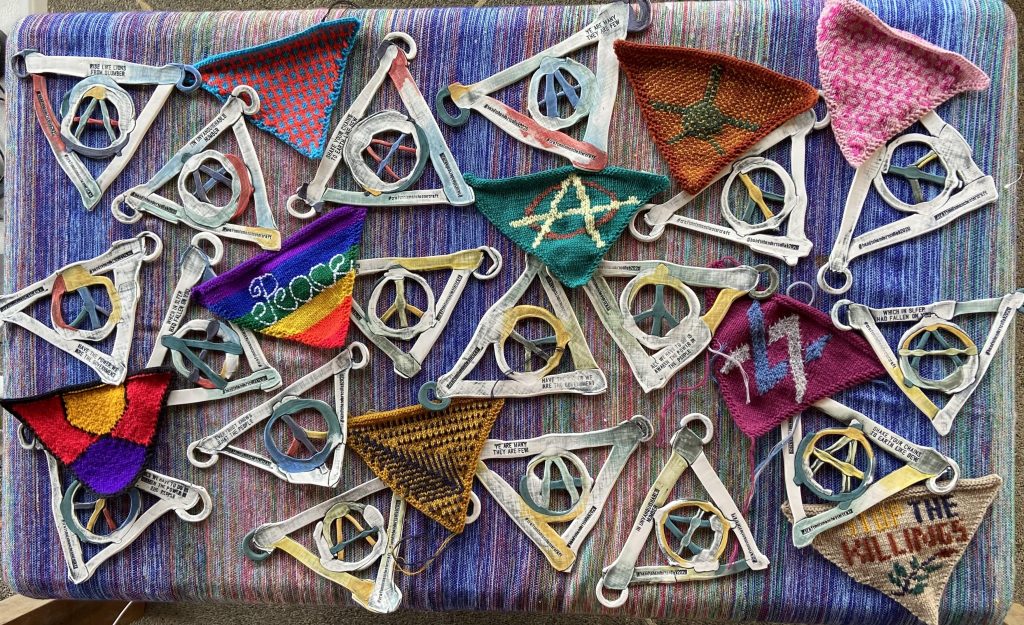
Onward
Months later, at a recent video call to regroup, Linzi and Candy share how they have been busy with their own personal work and community endeavors.
Linzi talks about her creative contribution to a fundraiser for a community breakfast project, which serves fresh, warm meals in a comfortable setting. This is to offset the stigma felt by people who line up at food banks. She researched symbols representing refugees and asylum seekers, and created brooches and Christmas decorations that will serve as conversation pieces on the refugee crisis.
Linzi, who identifies as a socialist, credits how her collaboration has opened up conversations with people who view her politics with skepticism. She finds that, through the openness of her studio and her pieces, their skepticism becomes curiosity and a chance at conversation.
On how the past few years and this collaboration encouraged a journey of self-discovery, Linzi shares, “I want to find out about good things and do good things — act in a way that encourages people that’s inspiring.”
“I want to find out about good things and do good things — act in a way that encourages people that's inspiring.”
She adds, “It inspired me to go forward on this self-education to learn about political theory, historical materialism and dialectics, etc. This set me off on a journey in a positive way rather than [face] a paralysis of doom. I couldn’t be more thankful.” Linzi is proud of the work that she and Candy have made. They have already been planning ways to share their work at upcoming community events and festivals, ready to start meeting people in avenues where they are open to dialogue.
As for Candy, she’s grateful to talk to Linzi again after months have passed. “Working with Linzi on this project really awakened the craftivist in me. This is something that I’ve always wanted to do and doing this with Linzi makes me feel inspired and more courageous!” She adds, “And although I’ve been busy with everyday things, it always feels good to connect with her and to bring myself back to our personal, meaningful work.”
Candy also shares that her work as co-founder of Knitting Expedition, a social enterprise that gives livelihood to women from a farming community in Uhaj, continued even during the lockdown. Their colorful knitted stuffed animals continue to receive orders, providing not only income for the women, but also support for daycare services and financial safety nets for the mountain village.
In June of the second year of the pandemic, she traveled north to Uhaj in the province of Ifugao to meet the growing community of knitters. Under the bright sun and in the midst of those peaceful paddies she has learned to love, she reconnects with old friends and their daughters. It is here that she has learned of a culture and way of life that can only continue thriving as long as they live on their land — preserving and protecting what their ancestors have cultivated.
Hopefully, another visit is possible later in the year for the rice harvest, when the community is out on the golden, terraced fields, filling the valley with laughter and the warmth of their presence.
With the national election in the Philippines just around the corner, Candy finds inspiration from other local artists who push against the indifference and cynicism brought about by the current political climate. Lights, no matter how small they may seem, are starting to shine brighter across the archipelago’s digital landscape. It is up to Candy to find where she connects in the movement for positive change online and out in the world.



